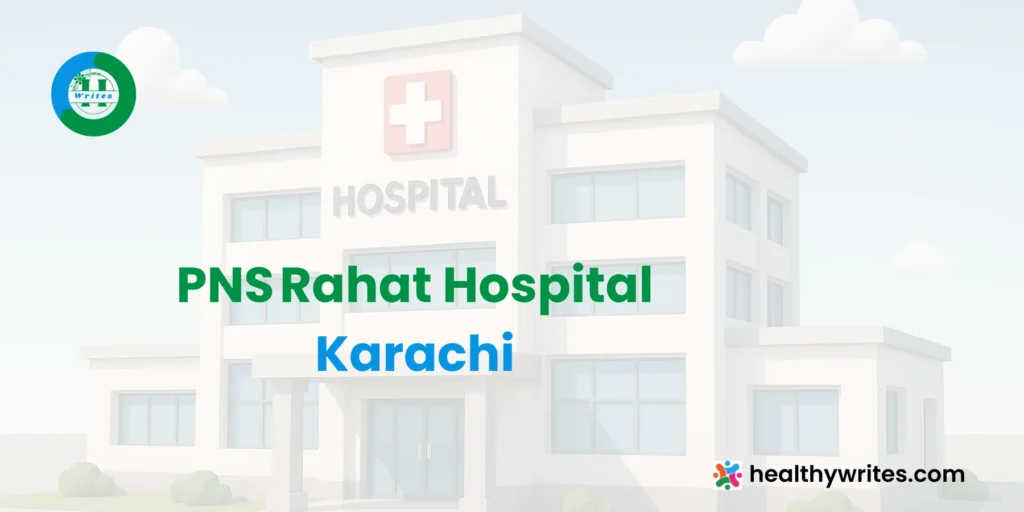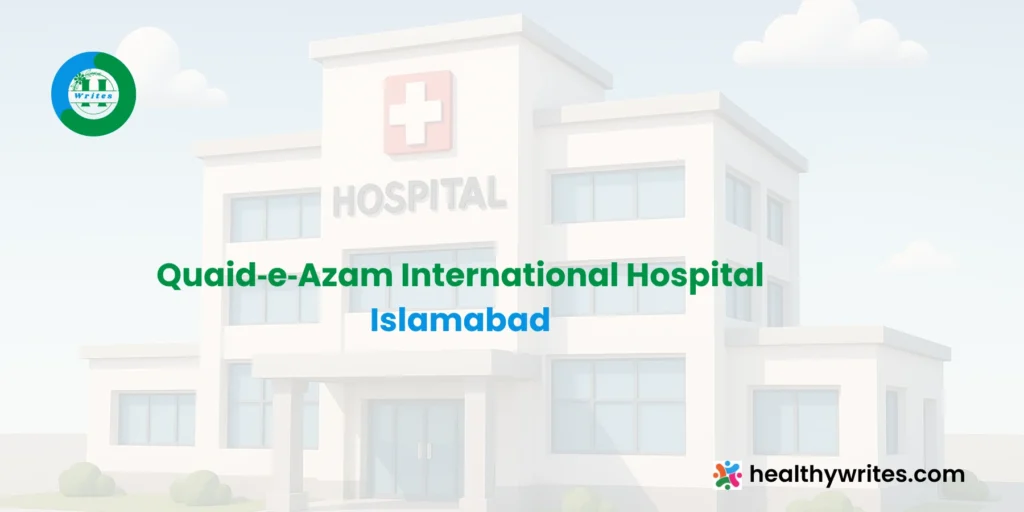PNS Rahat Hospital, formerly the naval sick bay at PNS Karsaz, was established in 1954 and elevated to a full hospital in 1994. It is a 200-bed military medical center operated by the Pakistan Navy, providing both primary and secondary care to naval personnel, retirees, their families, and civilians under special provision.
📍 Location & Accessibility
The hospital is located on Karsaz Road in the Karsaz/Faisal Cantonment area of Karachi. It is reachable via private vehicles, buses, rickshaws, and ambulances. The campus features secure parking, ambulance bays, ramps for accessibility, and clear directional signage.
🏥 Infrastructure & Capacity
- Bed Strength: Approximately 200 beds, including general medical, surgical, pediatric, gynecological, and ICU wards.
- Emergency & Casualty: Operates 24/7 with triage, resuscitation, and stabilization capabilities.
- Wards: Dedicated zones for officers, sailors, families, gynecology, pediatrics, and general medical cases.
- Operating Theatres: Equipped for routine surgical, gynecological, and pediatric operations.
- Outpatient Services: Family OPD, specialty clinics, immunization room, and staff surgeon consultations available.
- Facilities: In-house laboratory, digital X-ray, physiotherapy, pathology, radiology, dental, ophthalmology, ENT, and dietitian services.
⚙️ Specialties & Clinical Services
- General Medicine & Surgery
- Obstetrics & Gynecology
- Pediatrics
- Emergency & ICU Care
- Ophthalmology & ENT
- Dermatology and Dental Services
- Physiotherapy and Rehabilitation
🎯 Mission & Role
- Provide round‑the‑clock emergency care to naval personnel, spouses, retirees, and authorized civilians.
- Offer clinical services to families of CPOs, sailors, and civilian candidates in Navy recruitment.
- Support military medical fitness assessments and specialist outpatient clinics.
✅ Strengths & Highlights
- Reliable Emergency Coverage: 24/7 casualty and stabilization department.
- Wide Specialty Range: Multiple departments offer continual clinical services.
- Advanced Diagnostics: On‑site labs, imaging, and rehabilitative services.
- Discipline & Efficiency: Maintains military-level operational standards and patient satisfaction.
⚠️ Challenges & Development Opportunities
- Bed capacity is moderate; complex tertiary care may require referral or transfer.
- Speciality clinics have limited hours (typically evenings on weekdays); expanding hours would improve service access.
- Ongoing equipment modernization is needed—especially in imaging and ICU facilities.
- Enhancing online appointment systems and transparency could improve civilian access.
📈 Recent Enhancements & Initiatives
- Gradual upgrades to laboratory, surgical, and ICU infrastructure as part of Navy HMIS integration.
- Implementation of modern physiotherapy and rehabilitation services.
- Community outreach through immunization drives and nearby educational facility collaboration.
❓ FAQs – PNS Rahat Hospital
Is it open to civilians?
Yes — civilians can access care via OPD appointments and emergency services, subject to Navy policies.
Are emergency services available 24/7?
Absolutely — casualty, ICU, and stabilization services are continuously operational.
When are specialist clinics held?
Consultant clinics are typically available Monday–Friday evenings (around 6–8 PM).
How do I book appointments?
Appointments can be scheduled by phone at +92 21 48503460 during working hours.
Are diagnostics available on-site?
Yes — full labs, X-ray imaging, plus physiotherapy and dental services are available in-house.
Who is eligible to be admitted?
Naval personnel, families, retirees, CPOs, sailors, and select civilians under Navy healthcare guidelines.
🔍 Conclusion
PNS Rahat Hospital is a well-established 200-bed military medical facility providing emergency, inpatient, surgical, and diagnostic services. With disciplined service standards, a broad range of specialties, and emergency readiness, it stands as a reliable healthcare option for both military and civilian patients. Continued investment in capacity, equipment, and service hours will help it meet evolving community needs effectively.





